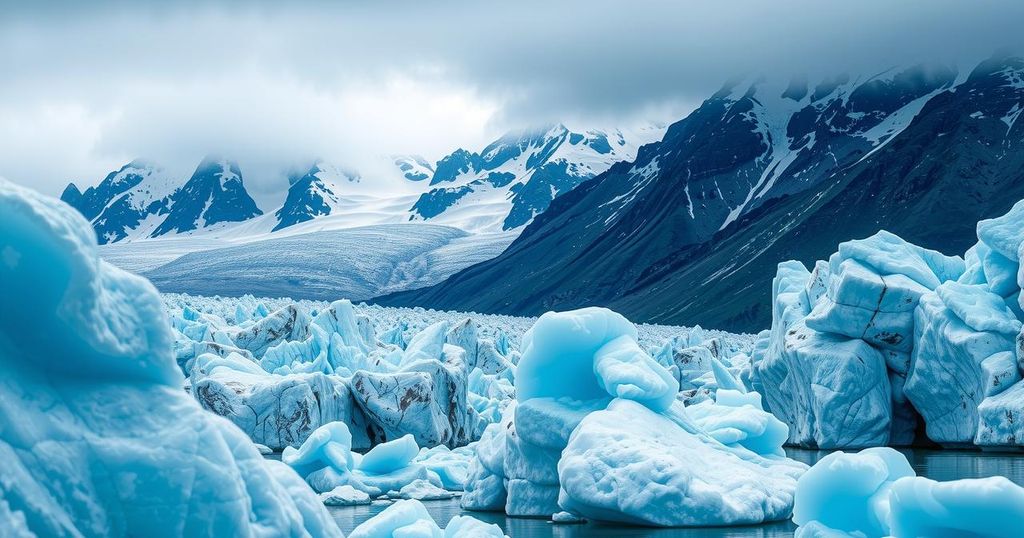Climate change
ANDEAN G, ANGELA PONCE, ANGELA PONCE SAUL LUCIANO LLIUYA, CLIMATE CHANGE, CORDILLERA BLANCA, ENVIROMENTAL_ISSUES, ENVIRONMENTAL IMPACT, EUROPE, GERMANWATCH, GERMANY, GREENHOUSE GAS EMISSIONS, HUARAZ, LEGAL, LLIUYA, NORTH AMERICA, PERU, REUTERS, RWE, SAUL LUCIANO LLIUYA, SOUTH AMERICA, UNITED STATES
Jamal Walker
0 Comments
Peruvian Farmer’s Landmark Lawsuit Against RWE Tests Climate Accountability
In Peru’s Cordillera Blanca, farmer Saul Luciano Lliuya has initiated a landmark lawsuit against RWE, a German energy firm, for contributing to climate change and glacier melting. He seeks financial assistance for flood defenses, asserting that the company’s emissions are partly responsible. The case will test corporate accountability for global greenhouse emissions and their impact locally. RWE disputes the claims, leading to a significant legal dispute that may set important precedents for future climate litigation.
In the high Andes of northern Peru, the glaciers of the Cordillera Blanca are at risk of meltwater floods due to climate change. This precarious situation has catalyzed a landmark lawsuit aimed at holding corporations responsible for emissions that contribute to such environmental issues. The case launched by Peruvian farmer Saul Luciano Lliuya against the German energy company RWE will examine the company’s legal culpability concerning global greenhouse gas emissions and their environmental impacts.
Saul Luciano Lliuya, a farmer and mountain guide from Huaraz, is demanding that RWE assist in funding flood defenses for his city, citing the company’s contribution to global warming. He claims RWE is responsible for 0.5% of global greenhouse emissions and seeks €17,000, which corresponds to this percentage, towards a $3.5 million flood defense project. Supported by the environmental advocacy group Germanwatch, Lliuya hopes to establish a legal precedent requiring polluting corporations to contribute to climate change mitigation efforts.
RWE has rejected the claims made in the lawsuit, asserting that a single entity cannot be held accountable for global climate impacts. The company characterizes the litigation as an attempt to create a precedent where all greenhouse gas emitters could be liable for climate-related damages, arguing this viewpoint is both legally indefensible and politically flawed.
The legal battle, originating from a property interference clause in German civil law, was initially dismissed by a lower court but has now been appealed to a higher court in Hamm. Lliuya’s community faces significant flood risks as melting glaciers increase the volume of Lake Palcacocha, which had grown thirty-four times from 1974 to 2016. Residents like Nestor Acuna express fears of flooding and landslides exacerbated by climate change.
Some recent government interventions have included road closures around the lake following heavy rains and landslides, coupled with dam and drainage installations aimed at mitigating flood risks. However, officials indicate the need for more infrastructure to adequately protect Huaraz, home to a population exceeding 65,000.
Peru houses nearly 70% of the world’s tropical glaciers, which are increasingly vulnerable due to scarce climatic conditions. The 2023 glacier inventory reported over half of Peru’s glaciers lost in the past six decades due to climate change, highlighting the Cordillera Blanca and its associated lagoons as high-risk areas for flooding. Lliuya notes the visible retreat of glaciers, which contributes to long-term water supply concerns, stating, “It worries us, saddens us, that we’re losing our glaciers.”
Roda Verheyen, Lliuya’s attorney, expresses optimism about the case’s potential to raise awareness, regardless of its outcome. She emphasizes that the ability to present their findings signifies an important accomplishment that could benefit future legal efforts in climate justice.
In conclusion, the court case initiated by Saul Luciano Lliuya against RWE addresses the broader implications of corporate accountability in climate change. The outcomes of such legal claims may pave the way for future litigation against polluting companies, marking a significant movement towards addressing climate-related liabilities on a global scale.
In conclusion, Saul Luciano Lliuya’s lawsuit against RWE represents an important step in the effort to hold corporations accountable for their contributions to climate change. With glaciers in Peru melting at an alarming rate, the case highlights the urgent need for legal mechanisms that can ensure polluting entities contribute to mitigating the effects of their emissions. This landmark case may set a precedent for similar litigations worldwide and encourage greater corporate responsibility towards environmental stewardship.
Original Source: sightmagazine.com.au




Post Comment